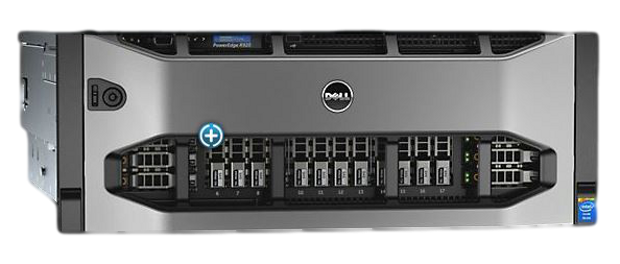Samsung Electronics Co., Ltd., global leader in advanced memory solutions, is announcing that its industry-first NVMe PCIe 1.6TB SSD is to be featured in Dell’s new R920 PowerEdge server. This partnership between Samsung and Dell gives them the distinction of being first in the world to ship a computing solution with SSDs that use the NVMe (non-volatile memory express) protocol, thus enabling their customers to produce and obtain the fastest possible results.
Samsung’s NVMe PCIe SSDs can write random data in a mere 25 microseconds, and are much faster than current disk-based arrays being used in server applications. This represents a marked improvement in performance in servers such as those being utilized for big data tasks. Ideal for enterprise usage scenarios, the drive offers extended endurance to the tune of seven drive writes per day (DWPD) for five years. Featuring the PCIe 3.0 interface, the drives are available in capacity points of 400GB, 800GB and 1600GB (1.6TB).
According to Jim Elliott, corporate vice president of memory and SSD marketing for Samsung Semiconductor, Inc., “We have been working closely with Dell to optimize the storage capabilities of the PowerEdge R920, and believe that our NVMe PCIe SSD provides the best enterprise storage solution, offering ultra-low latency and surpassing the IOPS (input/output operations per second) performance of currently available SSDs. Samsung will continue to take the initiative in accelerating growth of the NVMe PCIe SSD market for green IT investment by providing NVMe PCIe solutions with high performance, density and scalability.”
Samsung’s 2.5″ 1.6TB, SFF-8639 NVMe PCIe SSD is capable of sequential read speeds of up to an amazing 3,000 MB/s, and can process data at up to an incredible 750,000 IOPS. This is more than three times faster than current high-end SAS 12Gb/s SSD offerings. As far as power “efficiency”, this drive processes 25% more IOPS per watt than those same SAS 12Gb/s SSD solutions. Also featured is “power loss protection,” ensuring that host system data can be written to storage without any loss of the data in the event of an unexpected power failure or interruption.
Brian Payne, executive director of Server Solutions for Dell, states that “Dell has long been a leader in driving industry interoperability standards, and by collaborating with Samsung to deliver Flash NVMe PCIe SSDs in the PowerEdge R920 we’re improving storage latency and reducing response time, making it faster for customers to deliver business results. The Dell PowerEdge R920 is not only our fastest performing server to date but the first in the industry to ship with NVMe PCIe SSDs. This is an important milestone for the NVMe community and we expect it will help facilitate the widespread use of NVMe PCIe SSDs.”
The Dell PowerEdge R920 with Flash NVMe PCIe SSDs is available worldwide. Dell’s product page for the PowerEdge R920 can be viewed here.
 The SSD Review The Worlds Dedicated SSD Education and Review Resource |
The SSD Review The Worlds Dedicated SSD Education and Review Resource | 


3,000 MB/s = 3 GB/s and 3 GB/s < 12 GB/s < 3 * 12 GB/s
Should 12GB/s be 12Gbps ? Correct me if I was wrong.
Yeah, SAS is 12Gbit not 12GB.
Related to the article, here is a brief, upbeat and informative video overview of the Dell PowerEdge R920 4u rack server: https://www.youtube.com/watch?v=niYKO2sHNzI